Time is always at a premium for those employed within the horse racing industry and often it’s sleep that gets sacrificed in order to meet the demands of a busy daily schedule.
In this article we reinforce the value of sleep and argue that regular rest — as part of an improved routine — can boost performance and encourage better overall physical and mental health.
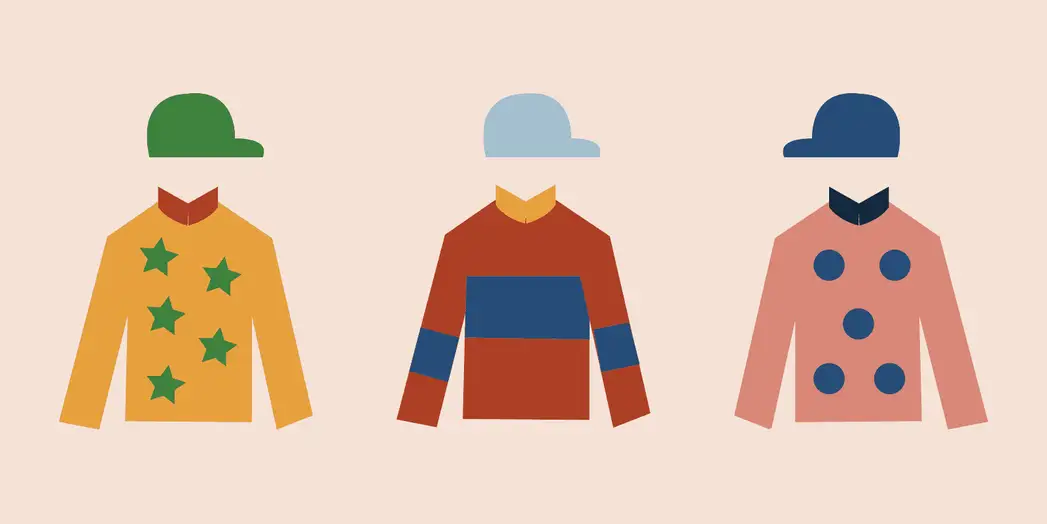
Why is sleep important?
Good sleep is vital for physical, mental and emotional wellbeing. It’s the very foundation of living a happy and healthy life.
Good sleep plays a role in every part of our lives, from learning a concerto to chopping a cucumber, from getting on well with our partner to flying an aircraft.
By contrast, poor sleep results in many adverse effects that can have a consequence on the way we live and perform each day. These include:
- impaired hand-eye coordination
- slower response time
- lowered visual discrimination
- reduced alertness
- increased error rates
- reduced logical reasoning
- short-term memory problems
- reduced concentration
- frustration and irritability
- impaired decision making
- injuries and accidents.
Sleep quality can make a difference
A study of Australian racehorse trainers revealed that overall sleep quality was worse among trainers compared to non-trainers and a sample of the general population.1
Sleep duration was shorter and daytime dysfunction was also worse among the trainers. Daytime dysfunction can mean a lack of interest in carrying out daily tasks and difficulty staying awake during daytime activities such as eating, working or socialising.
Trainers who exhibited daytime dysfunction caused by fatigue were also much more likely to report higher levels of depression and anxiety. By its very nature, the job of racehorse trainer can be stressful and involve hectic schedules.
Factors at work that could affect sleep include:
- pressure from owners for horses to perform
- dealing with the complexities of managing stables
- insecure income
- long hours and high stress levels (which can impact personal relationships).
In such a highly competitive and fast-paced working environment, trainers are at risk of picking up poor sleep habits which could affect their mental wellbeing.
If you feel like poor sleep may be negatively influencing your daytime performance, take our sleep quiz to see how we can help you.
Racing towards an early start
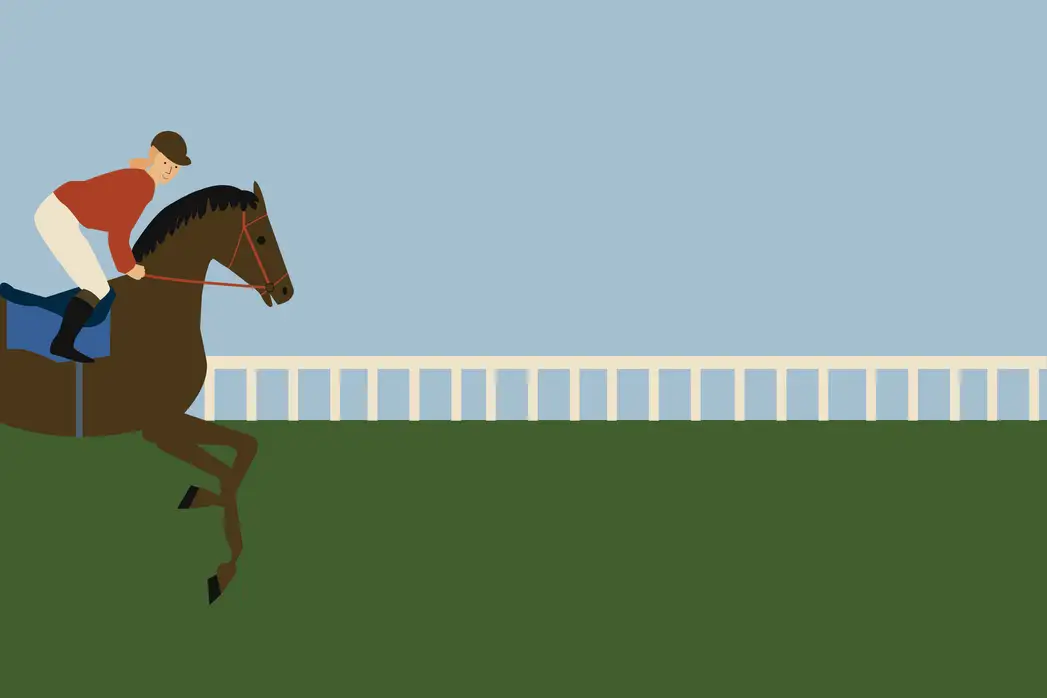
The working day can start exceptionally early for stable hands, track riders and trainers with many of these key professionals starting work as early as 3am.
An Australian study examined the working hours at metropolitan tracks and whether there was a need for horses to be trained so early.2
The main reason for this is that all participants strongly agreed that early mornings allowed them to get to almost any racecourse in Victoria after completing track work; they were able to get horses back into their boxes in time for a feed, rest and then afternoon session; and it also allowed jockeys and apprentices to ride track work, while still making the races later that day.
The survey found that there was little desire to change and noted:
- 100% of trainers were driven to maintain the hours as it allows them time to prepare for and/or attend race days
- 5% of track riders supported the status quo as it allowed them to undertake other personal/business activities during the day
- 83% of jockeys said that the timing allowed them to supplement their riding income with track work income.
Sleep, health and safety
Sleep problems can be a critical workplace health and safety issue, particularly when unusual sleep/wake patterns are an integral part of the workplace.3 4
However, people in the racing industry tend to start and finish work at times of the day that don’t necessarily fit with the body clock’s recognised light/dark cycle. This can lead to unintended consequences on their health and the health of their staff and colleagues.2
The stress of elite sport
There appears to be a core group of stressors that are common to all elite athletes, which include:
- constant pressure to perform to a high standard
- concerns about poor performance
- difficulties balancing sporting and non-sporting commitments.5 6
Being a jockey is no exception as it’s considered a highly competitive, stressful, and often dangerous occupation.7 8 9
Horse-related injuries and fatalities for jockeys and track-riders are a significant problem, with horse racing statistically the most dangerous sport — eclipsing even motor racing.8
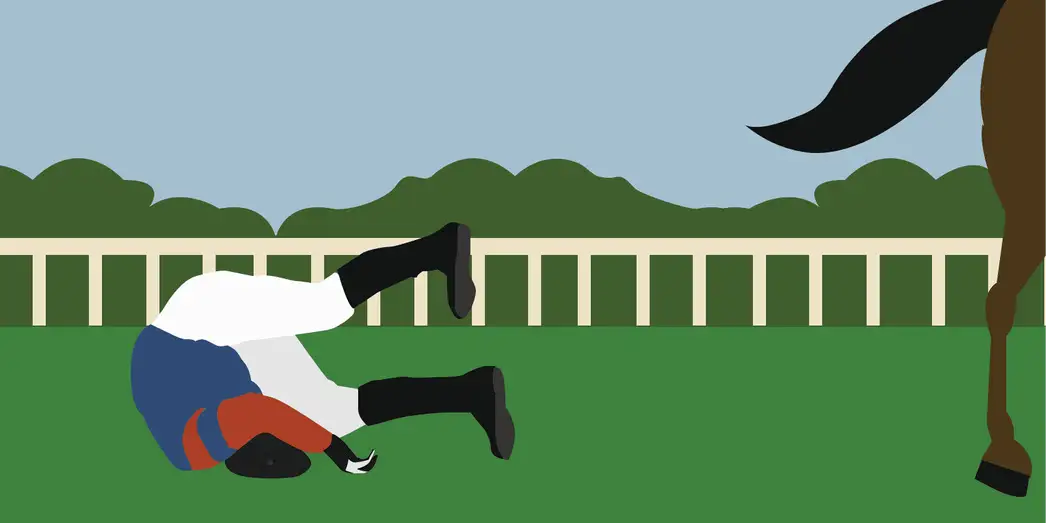
Workplace injuries are likely exacerbated by ongoing chronic stress and its detrimental impact on a jockey’s decision-making capabilities.10 11 Jockeys also have to deal with the possibility of negative evaluations from trainers, horse owners and the public.
Within the racing industry, owners are often unwilling to acknowledge that they may have purchased a worthless horse and instead prefer to blame the jockey than their mount.12
Worry and stress are well known to cause poor sleep. People with chronic stress have been shown to:
- sleep less
- have poorer sleep quality
- find it harder to function well during the day.
Chemicals in the brain during normal sleep signal to the body to stop the production of stress hormones, whereas poor sleep at night causes the body to boost its levels of stress hormones.
The result of this is that you feel more stressed the next day and you find it harder to fall asleep at night. You can then become locked into a vicious cycle.
How the relentless demands of the racing industry can affect sleep
One physical demand identified by apprentices at every level is the combination of a gruelling workload with the number of hours spent working. An apprentice’s day begins early and most days are long.
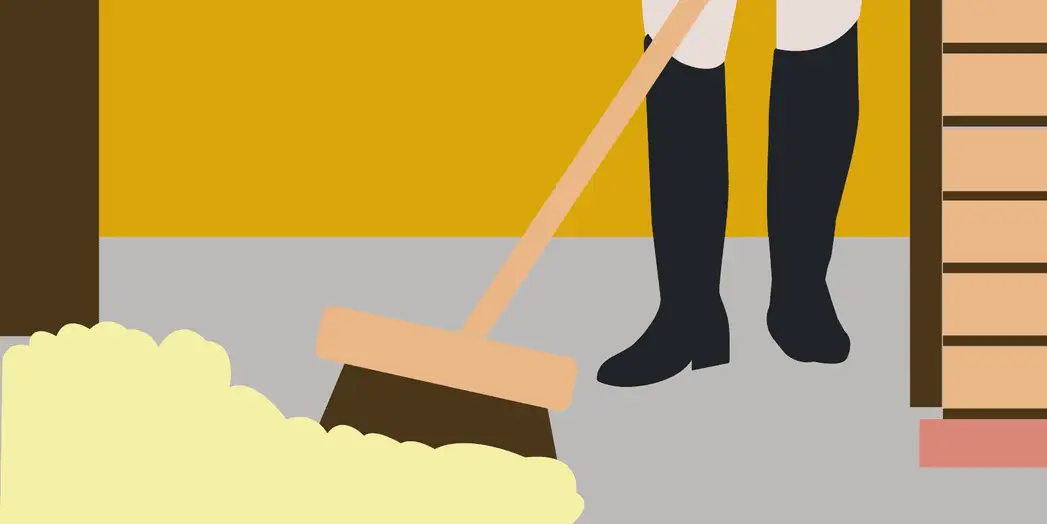
A relentless schedule, day in day out, can lead to a lack of sleep and persistent fatigue. One apprentice offered a summary of a typical working day:
- Get up at 3am.
- Trackwork until maybe 7.30am.
- Groundwork, sweeping up, mucking out boxes say until about 8.30am or 9am.
- Depending on what time your first race is, 1-2 hour drive to racecourse.
- Get to the races, ride all day.
- Finish at about 5pm and drive 1-2 hours home.
- Have dinner on the way home in the car or have dinner when you get home — depending on the time you get home.
- Look up the rides for the following day and study a little bit of form before you go to bed.
- Go to bed and get up at 3am again.11
Horse racing’s licence to work long hours
In the UK, you can get your first jockey’s licence at the age of 16 and most jockeys start their career between the ages of 16 and 22. This is important to note because teenagers genuinely need more sleep than adults.
At 16 years old, many teenagers may still be going through puberty and the vast majority will still be growing. Sleep is essential to deal with the major physical and emotional changes that they’re going through.
Teenagers also need to go to sleep later than adults. There’s a natural shift in their biological rhythm and although we don’t know why this shift has evolved, it’s there. Importantly, though, this shift is, at most, only two hours.
The recommended bedtime for a teenager is around 11pm-11.30pm and they should be getting, on average, about 9-9.5 hours’ sleep. According to the National Sleep Foundation, the acceptable ranges are:
- 7-11 hours (aged 14-17)
- 6-11 hours (aged 18-25)
For a teenager, 7am is like 5am for a full-grown adult. Imagine how a 4am start must feel to young jockeys starting their day!
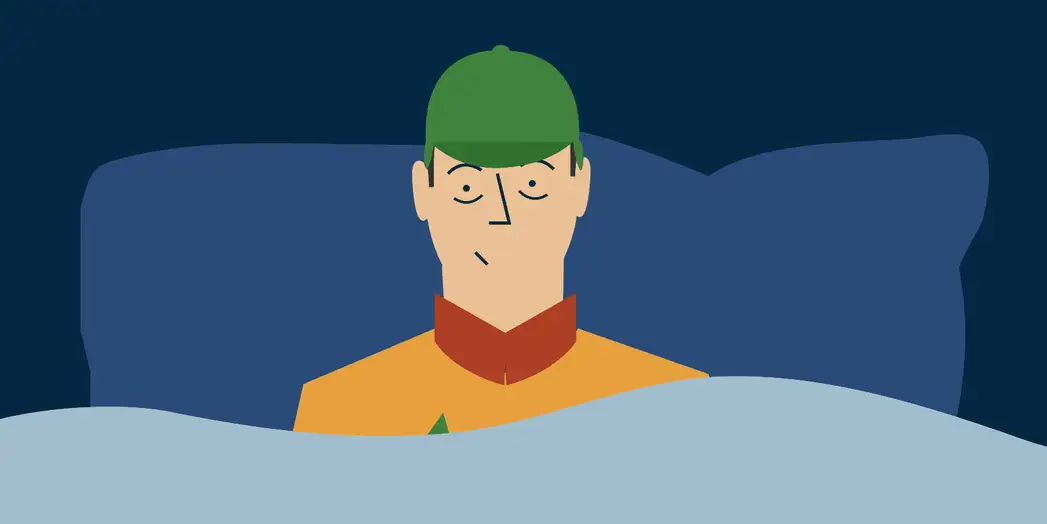
How tiredness can take its toll
Excessive sleepiness can:
- limit your ability to learn, listen, concentrate and solve problems
- contribute to acne and other skin problems
- lead to aggressive or inappropriate behaviour
- cause overeating or eating unhealthy foods
- contribute to illness.
Although the timing of your sleep can be dictated by external factors such as your job and your lifestyle, whether you’re a morning person (lark) or a late sleeper (owl) is mostly down to your genes.
About a quarter of people are strongly morning people, a quarter strongly evening and the rest somewhere between the two. This is known as your chronotype.
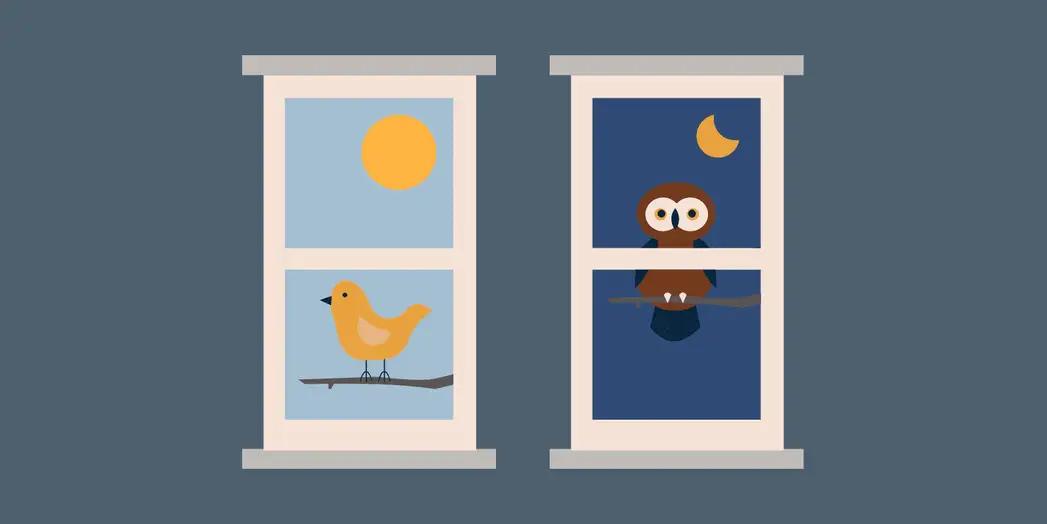
Because it’s mostly determined by your genetics, it’s not possible for you to ‘train’ yourself to become a ‘lark’ or an ‘owl’. It is possible, however, to adopt lifestyle measures that can help with the effects of performing against your chronotype and reducing its impact.
For instance, owls would benefit from getting exposure to daylight as soon as possible after they wake up. Larks may find that getting out in the daylight during late afternoon/early evening helps them to stay awake longer.
Owls often find getting up to be their main problem. They’re naturally programmed to sleep late, but our modern lifestyles mean that mornings often start earlier than owls would like.
If you’re an owl you may experience ‘sleep inertia’ — that feeling of grogginess in the morning that can last for between 15 minutes and two hours after waking.
Good sleep is necessary for better focus, concentration and learning
Jockeys often have to concentrate and focus for short periods repeatedly during a typical day. They need to prepare themselves mentally before each race and this can be exhausting with several meetings per week.
Jockeys reported that riding an unpredictable horse required their full concentration.13 Otherwise, it could result in a fall and subsequent injury. For others, not concentrating angered their trainer, with one jockey admitting:
You can get into trouble if you’re not concentrating when your trainer tells you to do certain work and you’re galloping and you’re not getting the times right.11
The impact of poor sleep on your ability to work well is known to be very similar to the impact of alcohol on your overall performance.
If you normally require eight hours of sleep per night to function at your best then every hour of sleep lost impairs your performance the following day. Think of it as follows:
- two hours’ sleep lost = two beers consumed (500ml)
- four hours lost = four beers
- six hours lost = five beers
- eight hours lost = seven beers.
Turning up to work under the influence of alcohol would be a disciplinary offence in most workplaces and yet people often turn up to work sleepy — even though the impairment of their performance is the same.
The horse racing industry requires its employees to be aware and alert at all times and working with animals demands intense focus and patience.
Sleep, because of its key role in memory and learning, is also necessary for acquiring new skills or remembering new information. In the case of jockeys this could be the course layout, the running style of their mounts or the form of rivals.
Are you worried about your sleep?
We can work with you to find the root cause of your sleep problems and help you to improve your sleep.
Sleep has a major influence on athletic performance
While sleep is important for optimal athletic performance, elite sport isn’t often conducive to regular sleep. Work, training schedules, travel and the pressure of competition can all contribute to disrupted sleep.
Studies from Stanford University have demonstrated the beneficial effects of better sleep on athletic performance.14 15 In a study of the men’s basketball team, players were asked to get as much night-time sleep as possible.14
The objective was to extend their sleep time to at least 10 hours in bed each night. Their total nightly sleep time increased by an average of just under two hours per night (the range was 0.5-3hrs across the group). In turn, this led to:
- faster sprint times
- improved shooting, passing and goal percentages
- faster reaction times
- improved overall levels of physical and mental wellbeing, during both practices and games.
A similar study in the university’s women’s tennis team showed that those who increased their sleep time ran faster sprints and hit more accurate tennis shots.15
These results all indicate that getting optimal sleep is likely to help athletes reach peak performance.
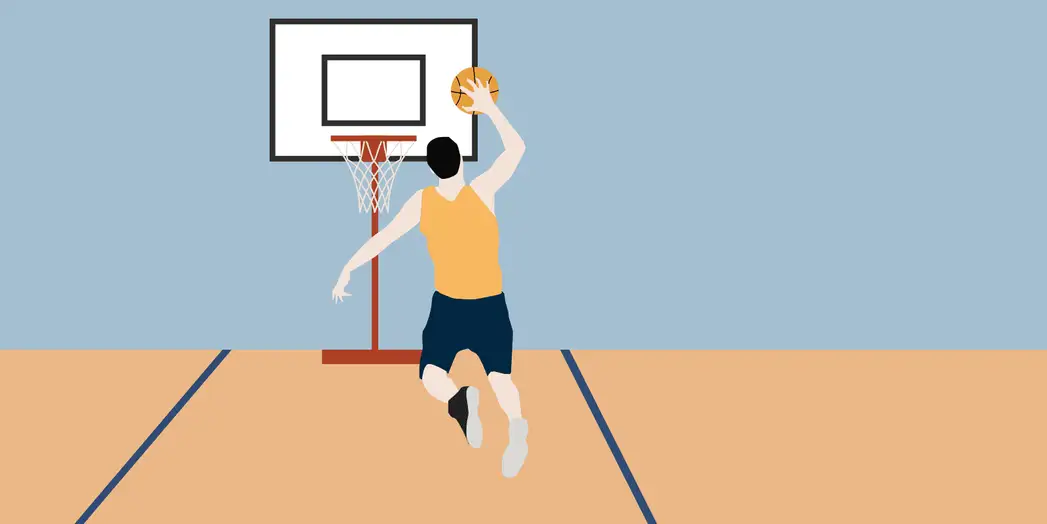
Lack of sleep can negatively affect your athletic ability
Researchers believe that sleep helps improve athletic performance because, during deep sleep, human growth hormone is released. This hormone stimulates muscle growth and repair, bone-building and fat burning and therefore helps athletes recover.16
Studies have shown that sleep deprivation slows the release of growth hormone. It’s been found that sleep deprivation has a negative effect on the day-to-day recovery of leg strength/power, sprint performance and self-selected exercise intensities.17
Muscles contain stores of a sugar called glycogen which are used for energy. During sleep, these stocks of glycogen are replenished but when sleep is poor, this ‘restocking’ is reduced.
This may contribute to a decline in athletic performance because the muscles don’t have sufficient energy to perform at their best. So it’s important to try to ensure adequate sleep occurs between competitive events to optimise athletic performance and to ensure sufficient muscle recovery.
Physical activity is one of the most effective ways to stay healthy but many people who exercise could be limiting any gains by not getting enough sleep. This is because the amount of sleep we get is linked to how active we are and how energetic we feel.
Studies show that people who have trouble sleeping at night — or who feel excessively sleepy during the day — have less energy and a reduced desire to be physically active.18
One study found that a single night of sleep deprivation decreased endurance performance in males with impacts on their pacing, heartbeat and breathing rates and control of body temperature.19
Despite running for a shorter distance after sleep deprivation than the control group, participants’ perception of effort was similar, meaning that they felt they had run to the best of their ability and for a similar distance as the good sleepers.
This suggests that the reduction in endurance performance is, at least in part, due to how the person thinks they are performing. Their sleep-deprived brain makes them feel that they are giving 100% when, in fact, they’re actually falling short.
Even partial sleep deprivation (a three-hour sleep loss) has been shown to affect performance, with significant increases in heart and respiratory rates being seen during exercise compared with results obtained after a typical night.20 21
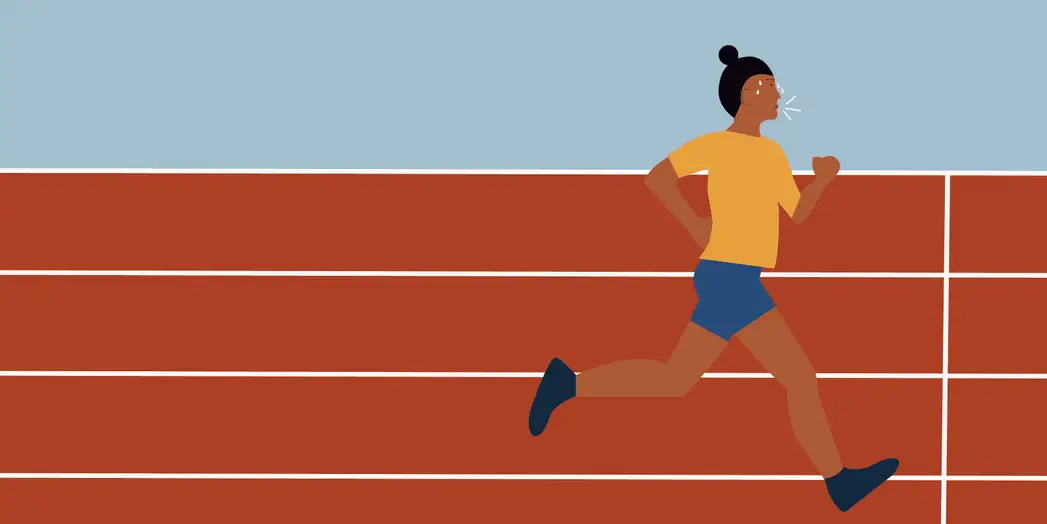
Sleep’s relationship with weight and diet
One of the most recognised ‘physical demands’ within the horse racing industry is the requirement for jockeys to maintain a certain weight throughout their career.
Maintenance and control of weight is an enduring challenge for jockeys. Studies have shown that there’s an association between short sleep duration and being overweight.
Those who sleep for fewer than seven hours a night are likely to have a higher BMI than those who regularly have a good night’s sleep.
It’s also been suggested that weight-making practices may impair riding performance and increase the occupational risks of race riding.22 23 Professional jockeys restrict themselves to a diet designed to keep their weight at an ‘artificially imposed’ level.24
Eating a healthy, varied and balanced diet will not only help you meet your nutrient needs for general health and wellbeing, it’ll also provide all the nutrients needed for a good sleep. Poor sleep can cause you to eat irregularly, snack between meals, season your food excessively and eat fewer vegetables.
Poor sleep has also been shown to cause 24% higher hunger ratings, a 23% increase in overall appetite and a 33% increase in desire for high fat, high carbohydrate foods.25 26 So, when you’re sleepy you want to eat and you’re naturally drawn more towards unhealthy food options.

Studies show that restricted sleep also leads to an increase in fat production and weight gain. This is because lack of sleep results in a significant disturbance in certain hormones that control appetite, particularly ghrelin and leptin.
Ghrelin stimulates appetite, fat production and body growth, leading to increased food intake and body weight, while leptin helps to regulate food intake and signals to the body when it’s had enough food.
Levels of ghrelin and leptin vary depending on the amount of sleep you get. When we have insufficient sleep, our leptin levels decrease and our ghrelin levels rise, suggesting that lack of sleep is partly responsible for an increase in appetite.
These changes can occur after just a single night of restricted sleep. Conversely, recent research has shown that by extending sleep, sugar consumption can be reduced.
Making sure you get enough sleep can help you avoid poor eating habits and make you less likely to succumb to high-calorie, high-fat and less nutritious foods. In other words, if you’re a jockey then better sleep will help you take better care of your body.
The horse racing industry’s drive for success
A particular problem in the racing industry is the excessive hours spent travelling.11 One jockey summed it up with the following quote:
I drove Friday morning from A to B, then that night from B to C to ride on the Saturday, then from C to D…it was another five hours, then that night back to C and then the next morning back to A.
Most people are aware of the hazards of drinking and driving but driving whilst sleepy can be just as dangerous. Poor sleep has an effect on car driving equivalent to that of alcohol, the poorer your sleep the worse your driving ability.27 28
Research has shown that even moderate sleep deprivation affects driving performance to the same degree as low-level alcohol intoxication. Like alcohol, lack of sleep slows your reaction time and affects your judgement.
Falling asleep at the wheel is particularly dangerous as it only takes a matter of seconds for your car to come off the road and, because you’re asleep, you don’t take any evasive action. Whatever you hit, you hit hard.
There can be any number of underlying causes of sleepy driving but factors include:
- not getting enough sleep
- having interrupted or fragmented sleep
- having a chronic sleep debt
- working shifts
- time awake before driving
- early morning starts to beat the traffic
- overnight drives when it is quieter on the road.
Any combination of these factors can significantly increase your risk of experiencing a sleep-related accident.
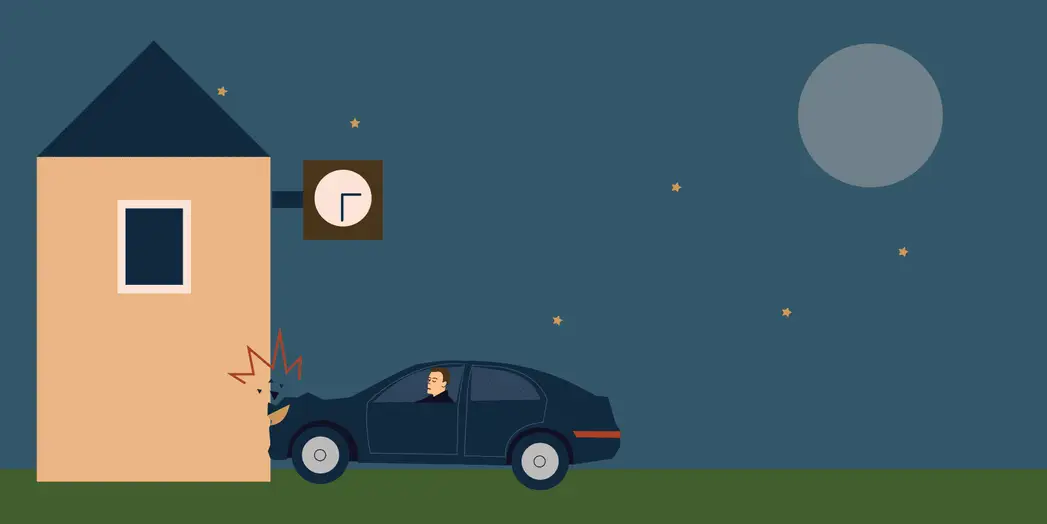
The most vulnerable time for sleep-related car accidents is around 2–7am. You should, if at all possible, avoid driving during these times. There’s another, smaller, peak of accidents in the mid-afternoon during the ‘post-lunch dip’.
Warning signs that you’re too sleepy to drive safely include:
- trouble keeping your eyes focused
- drifting across the lane markers
- being unable to recall driving the last few miles
- fixating on and driving towards lights on the road during night time driving.
Jockeys should factor in regular breaks during longer journeys and, where possible, look to schedule race meetings with regular rest days.
Getting good quality sleep is key to performing at your best
There’s no denying that good sleep affects all areas of our lives. As we’ve discussed above, sleep is involved in processes as different as managing how we respond to stress, to keeping our weight in check. It can affect our athletic performance and influences how well we concentrate on our everyday tasks.
Careers in the racing world demand a huge amount of commitment, motivation and skill. Good sleep is key to functioning at your best and the fast-paced lifestyle that comes with working in horse racing can easily impact sleep.
If you feel as though your sleep could be better and want quality, long-lasting improvements, based on decades of sound science, register for Sleepstation today.
Summary
- Disrupted sleep can affect various aspects of your mental and physical health.
- Health and safety in the racing environment can be adversely affected by poor sleep.
- Early starts and late finishes can lead to a vicious cycle of disrupted sleep.
- Optimum sleep can improve performance.
- Poor sleep can limit your success.
- Watch your sleep as closely as you watch your weight.
- Driving while sleepy is a disaster waiting to happen.
References
- Bullock B, Critchley C, Davis H, Tirlea L, Fitzgerald K, Farmer J. Sleep and psychological wellbeing of racehorse industry workers: A survey of Australian trainers. Aust J Psychol. 2019;71(2):146–53. ↩︎
- Adams RJ, Appleton SL, Taylor AW, Gill TK, Lang C, McEvoy RD, et al. Sleep health of Australian adults in 2016: results of the 2016 Sleep Health Foundation national survey. Sleep Health. 2017;3(1):35–42. ↩︎
- Mill JG, N V, Wj H, Bw P. Sleep disturbances and reduced work functioning in depressive or anxiety disorders. Sleep medicine. 2013;1;14(11):1170-7. ↩︎
- Timms D. Majority rules for early start times. Herald Sun. 2016, June 10. ↩︎
- Scanlan TK, Stein GL, Ravizza K. An in-depth study of former elite figure skaters: III. Sources of stress. J Sport Exerc Psychol. 1991;13(2):103–20. ↩︎
- Gould D, Jackson S, Finch L. Sources of Stress in National Champion Figure Skaters. J Sport Exerc Psychol. 1993;15(2):134–59. ↩︎
- Bowman B, Cowley S, Lawrance M. Safety in the Victorian thoroughbred horseracing industry. Journal of occupational health and safety, Australia and New Zealand. 2007;Dec;23(5):421-31. ↩︎
- Cowley S, Bowman B, Lawrance M. Injuries in the Victorian thoroughbred racing industry. Br J Sports Med. 2007;41(10):639–43; discussion 643. ↩︎
- Hitchens PL, Blizzard CL, Jones G, Day LM, Fell J. The association between jockey experience and race-day falls in flat racing in Australia. Inj Prev. 2012;18(6):385–91. ↩︎
- McCrory P, Turner M, Murray J. A punch drunk jockey? Br J Sports Med. 2004;38(3):e3. ↩︎
- Landolt K, Maruff P, Horan B, Kingsley M, Kinsella G, O’Halloran PD, et al. Chronic work stress and decreased vagal tone impairs decision making and reaction time in jockeys. Psychoneuroendocrinology. 2017;84:151–8. ↩︎
- Vamplew W. Still crazy after all those years: Continuity in a changing labour market for professional Jockeys. Contemp Br Hist. 2000;14(2):115–45. ↩︎
- Maurstad A, Davis D, Cowles S. Co‐being and intra‐action in horse–human relationships: a multi‐species ethnography of be (com)ing human and be (com)ing horse. Social Anthropology. 2013;Aug;21(3):322-35. ↩︎
- Mah CD, Mah KE, Kezirian EJ, Dement WC. The effects of sleep extension on the athletic performance of collegiate basketball players. Sleep. 2011;34(7):943–50. ↩︎
- Schwartz J, Simon RD Jr. Sleep extension improves serving accuracy: A study with college varsity tennis players. Physiol Behav. 2015;151:541–4. ↩︎
- Venter RE. Role of sleep in performance and recovery of athletes: A review article. SA j res sport phys educ recreat. 2012;34(1):167–84. ↩︎
- Bulbulian R, Heaney JH, Leake CN, Sucec AA, Sjoholm NT. The effect of sleep deprivation and exercise load on isokinetic leg strength and endurance. Eur J Appl Physiol Occup Physiol. 1996;73(3–4):273–7 ↩︎
- Axelsson J, Ingre M, Kecklund G, Lekander M, Wright KP, Sundelin T. Sleepiness as motivation: a potential mechanism for how sleep deprivation affects behavior. Sleep. 2020;43(6). ↩︎
- Oliver SJ, Costa RJS, Laing SJ, Bilzon JLJ, Walsh NP. One night of sleep deprivation decreases treadmill endurance performance. Eur J Appl Physiol. 2009;107(2):155–61. ↩︎
- Dettoni JL, Consolim-Colombo FM, Drager LF, Rubira MC, Souza SBPC de, Irigoyen MC, et al. Cardiovascular effects of partial sleep deprivation in healthy volunteers. J Appl Physiol. 2012;113(2):232–6. ↩︎
- Mougin F, Simon-Rigaud ML, Davenne D, Renaud A, Garnier A, Kantelip JP, et al. Effects of sleep disturbances on subsequent physical performance. Eur J Appl Physiol Occup Physiol. 1991;63(2):77–82. ↩︎
- Wilson G, Drust B, Morton JP, Close GL. Weight-making strategies in professional jockeys: implications for physical and mental health and well-being. Sports Med. 2014;44(6):785–96. ↩︎
- Wilson G, Hawken MB, Poole I, Sparks A, Bennett S, Drust B, et al. Rapid weight-loss impairs simulated riding performance and strength in jockeys: implications for making-weight. J Sports Sci. 2014;32(4):383–91. ↩︎
- Labadarios D, Kotze J, Momberg D, Kotze TJ. Jockeys and their practices in South Africa. World Rev Nutr Diet. 1993;71:97–114. ↩︎
- Spiegel K, Tasali E, Penev P, Van Cauter E. Brief communication: Sleep curtailment in healthy young men is associated with decreased leptin levels, elevated ghrelin levels, and increased hunger and appetite. Ann Intern Med. 2004;141(11):846–50. ↩︎
- Van Cauter E, Spiegel K, Tasali E, Leproult R. Metabolic consequences of sleep and sleep loss. Sleep medicine. 2008; 9:S23-8. ↩︎
- Fairclough SH, Graham R. Impairment of driving performance caused by sleep deprivation or alcohol: a comparative study. Hum Factors. 1999;41(1):118–28. ↩︎
- Lowrie J, Brownlow H. The impact of sleep deprivation and alcohol on driving: a comparative study. BMC Public Health. 2020;20(1):980. ↩︎